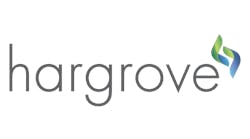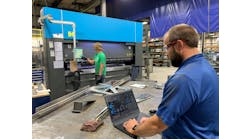More than one police officer has told me, "You know, I don't get anything extra for talking to you." Too true. Plus, I never had the extra $10 and $20 bills that seem to be carelessly handed out by many fictional reporters, so I just had to fall back on begging.
Luckily, pleading, coaxing, wheedling and just plain bugging sources to answer my questions has proven to be very productive. I'd like to think it's because people in general and technical experts in particular are willing to discuss topics they care about and in which they have a lot of experience. However, I'm pretty certain that many, if not most, also agree to be interviewed because the sooner they talk to me, the sooner I'll be out of their hair.
Either way, I don't mind at all. Whatever gets me some useful answers. I was told it never hurts to ask, so I just ran with that simple directive, and I continue to do it because it's effective. Many of the newspapers, magazines, editors and reporters I've worked with have good success with printed or emailed surveys or invitations to comment or answer questions. However, I've never had good luck securing responses. I believe emails are too easy to ignore, and that written responses typically sound like party-line answers that don't really answer the questions that were originally asked. This is why I stick with phone interviews that permit better give-and-take conversations, and also let me remind sources when, "You're not really answering the question."
Because I know how hard it can be to find useful sources and stories, I can readily sympathize with the organizers and members of the Open Process Process Automation Forum, and their years-long effort to draft the Open Process Automation Standard (O-PAS) and finally gain truly interoperable, plug-and-play process controls. Control is presently in its fifth year covering this story, including this issue's "OPAF/O-PAS world tour." However, each version is punctuated by an appeal for more participants because OPAF knows it always needs more members and contributors to direct development of the standard, and drive its adoption in the process industries.
Most recently, OPAF reported that even non-members can contribute stories about their needs for open process automation by participating in a new survey at www.cognitoforms.com/OPAS1/UserStories. It includes a brief form, which asks respondents for a "narrative that expresses one very specific need that a user has, normally expressed in a few sentences."
However, as much as I applaud and support OPAF's efforts, my previous experiences make me worry about the response it will receive—or not receive. Sadly, I've seen many similar invitations to participate in surveys or provide input end up crying in the wilderness. My own efforts to seek interviews by sending out multiple emails routinely fail, I hope because potential respondents are too busy, but more than likely because most electronic messages are too easy to ignore. Possible gift certificates and promises of free publicity barely make a dent.
So I go back to the phones, where I can bug people, sometimes so often that I think it just becomes easier to talk to me than to avoid me. I know this level of persistence is what it takes for me to get answers, so I'm pretty sure that other worthy endeavors like OPAF's quest for participation require the same amount of coaxing, pestering and outright arm-twisting.
Naturally, bugging people can feel awkward and even rude. My daughters and other youngsters tell me I need to text them before calling, and I do try to prearrange inquiries and most interviews. However, I think even aggressive inquiries can always be carried out in a polite and friendly way.
In any case, if you're advocating or doing a job that could benefit a larger community and make the world a better place, then you're on the side of the angels, your tenacity is justified, and you should keep it up.






